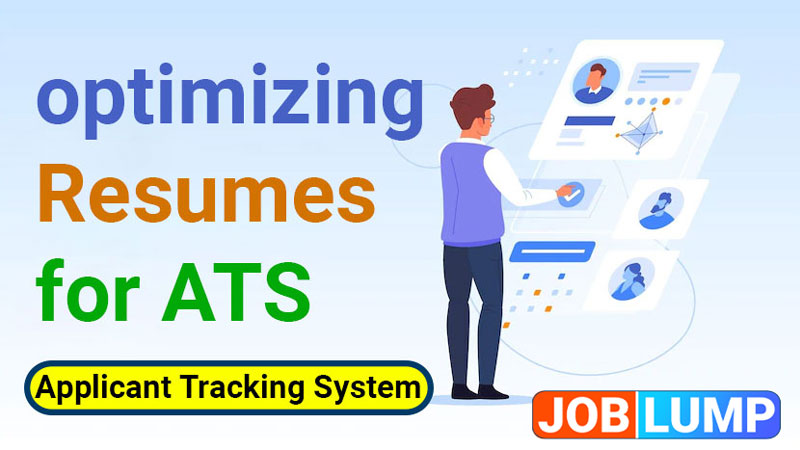Is your head spinning from all the rules? You should be optimizing your resume for employers, not Applicant Tracking System.
All over the internet, I have read hundreds of articles from so-called “specialists” that tell job seekers to focus on optimizing their resume for Applicant Tracking System (ATS). Most probably you have seen this too. These articles imply that you are not getting an interview because of poor resume optimization. More often than not they offer services to help you in this matter.
This sounds very similar to all the SEO (Search Engine Optimization) companies instructing you to optimize your site for search engines otherwise you won’t get traffic. While search engines like Google say it must be optimized for its users, not the other way around.
It looks like you should be optimizing your resume for employers, not the Applicant Tracking System. But who is arguing against Applicant Tracking System optimization? Nobody that I know of.
It seems that most of the sites that promote Applicant Tracking System optimization have a lot to benefit from this.
Does it matter? For most job seekers I would argue that optimizing a resume for machines is a waste of time and they should invest that time in being more active.

What is the Applicant Tracking System (ATS)?
ATS or Applicant Tracking System is a computer program that handles most recruitment needs but it is mostly seen by applicants as a gatekeeper. It searches through all the applications and based on the employer’s search criteria it will filter the resumes based on relevance. Similar to Google but way more rudimentary. Of course, they are not perfect and often enough valuable people are excluded from the manual screening process.
And here starts the panic. Everybody wants to have a relevant resume so that an employer can evaluate it based on its merits. So job seekers are scrambling all over the internet to find the information that will help them “improve” their resume.
What are the Applicant Tracking System optimization requirements?
- Use keywords that describe your strengths and skills seamlessly merged with your resume – What keywords should I use?
- Keep fonts and formatting simple – But there are so many cool styles now
- No borders, no lines, no symbols – Huh?
- Don’t use tables, text boxes, or columns – but… I need them
- Little to no graphics – It will look so dull
- Don’t use important information in headers and footers – really?
- Add a ZIP code so it identifies your location better – There goes my privacy
- Name your headings in a standard way. For example, name your section “Skills”, not “Abilities” – More time wasted searching how to name my sections
- Don’t write too much or it will think you’re trying to trick the system with too many keywords – How much is too much?
- Don’t write too little or there won’t be enough keywords – How many keywords should It have then?
- Include industry jargon and the company’s corporate lingo – Corporate lingo?
- You shouldn’t create your resume as PDFs because some Applicant Tracking System can’t parse it. The format may differ from employer to employer – What? I don’t want to make it multiple times
Is your head spinning from all these rules? Well… these are only a fraction of the total amount of specifications you will find online. A large part of popular articles are written by “specialists” who are working in recruiting and use the Applicant Tracking System to scan your resume. Very convenient. Instead of working on improving their search algorithms, they are asking the applicants to change their resumes with hundreds of ridiculous rules.
The result
After you follow all these rules your precious resume will look like it was written in Notepad.exe
Oh, dear! Similar to how the internet looked before CSS. Remember Yahoo! in the good old days?
This is how most resumes look today. No formatting, no spacing, no taste, no personality. Like Yahoo! was back in the 1990s.
You are more than that and the employers must know it.
Nick Carter Net Worth, Family, Career
Why shouldn’t I worry about the Applicant Tracking System?
- 98% of businesses in the US employ fewer than 100 people. Do you think the Applicant Tracking System is that important to them? For small and medium-sized companies you shouldn’t worry about Applicant Tracking System. They will handle most applications manually because there aren’t too many.
- Why invest hours or even days in optimizing your resume for something that only 2% of companies use? You could spend that time networking and applying to jobs like crazy. You never know what company will offer you a good position.
- In the end, your resume will be reviewed by a human. How will he/she feel about it when it was written for a machine?
- Applicant Tracking System systems are getting better and better thanks to companies like Google that offer Artificial Intelligence ( AI ) services to interpret large amounts of data. AI improves each day. In a few years, it may understand everything about an applicant just from looking at his resume. Subtle things like attitude, determination, vision, etc.
For me, as an employer, 2 things really matter:
- Skills and Experience
- Personality and Determination
While everybody knows that skill and experience are important, in my view personality and determination are close to equal and sometimes more important. We often hire young people that don’t have any experience but want to learn and bring value to the company. You can learn anything and be good at it if you have enough determination.
Conclusion
In the end, it all depends on your needs and what type of company you want to work for. If you are applying for an enterprise-level company with 10.000+ employees and fierce competition then this article may not apply to you.
The future will belong to resumes that are online 24/7. One place where you update one resume your entire life and share its link to possible employers. We are already seeing this trend with LinkedIn, where many have created a social profile as their resume. Others have their websites. It’s only a matter of time before everybody will have a permanent online presence for their career. No more uploading resumes or printing on old fashion paper.
For more information like this post, please visit regularly on our website

